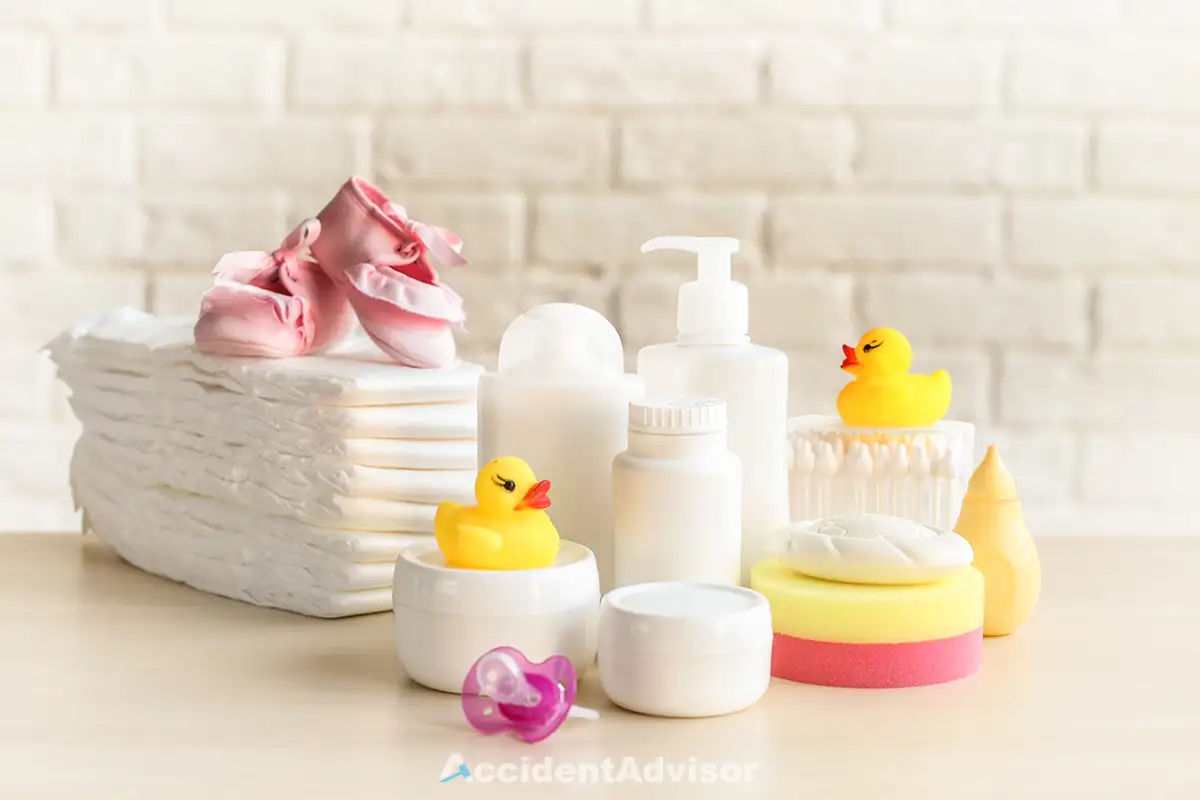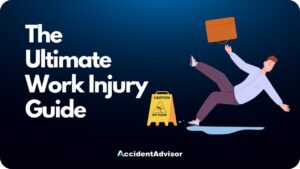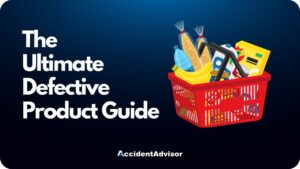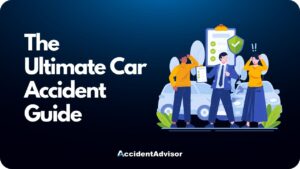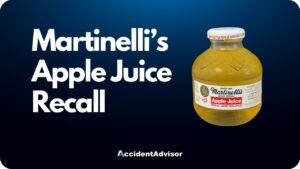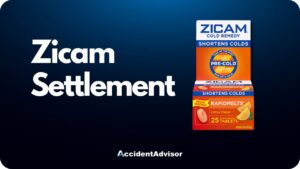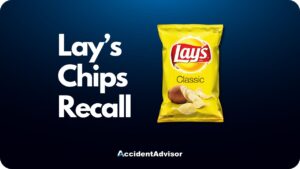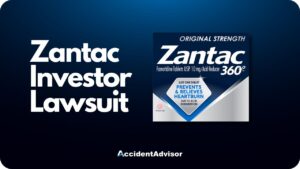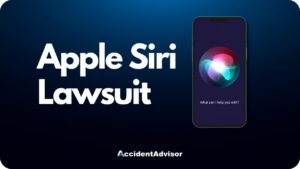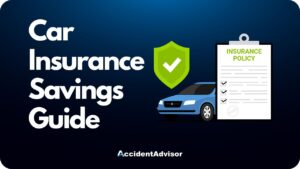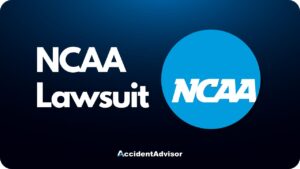The number of recalled baby products is on the rise in recent years. This represents a serious problem for parents, who have a right to expect baby products to be thoroughly tested and manufactured with safety as the top priority.
If your child was injured by recalled baby products or you would like to know more about how to respond to the recent recalls, review this information on recall statistics, the types of products that have been recalled, the reasons they might be pulled, and how you can get compensation if you or your child was hurt by a defective baby product.
Contact a personal injury attorney experienced in product recall cases to learn more about how you can win compensation for being injured by recalled baby products.
Table of Contents
- Recalled Baby Product Statistics
- How Do Baby Product Recalls Work?
- Do Companies Have to Issue Recalls for Defective Baby Products?
- What Type of Baby Product Defects Result in Recalls?
- Recently Recalled Baby Products
- Can You Sue for Recalled Baby Products?
- What To Do If You’ve Purchased a Recalled Baby Product?
- What To Do If Your Child Has Been Injured by a Recalled Baby Product?
- Conclusion
Recalled Baby Product Statistics
In 2022, 100 baby product recalls led to the most stressful year for buying clothes, toys, and safety devices that parents have had since 2013. This included 32 clothing recalls, 19 recalls for toxic lead content, multiple stroller brand recalls, and more. Significantly, though the recall number increased, the total number of recalled products was much lower than in previous years: 5.5 million products vs 19 million in 2021.
The CPSC or Consumer Product Safety Commission lists the most recently recalled baby products by brand, recall date, total units recalled, the hazard that necessitated the recall, and any potential remedies for the defective products, including help with returning the product to the manufacturer. You can search their database for this information here.
How Do Baby Product Recalls Work?
The CPSC is the organization responsible for baby product recalls once the manufacturers or consumers report an item to be unsafe. The CPSC uses FDA safety guidelines in its investigation to determine whether a product recall is warranted based on the complaints issued.
If they decide to recall the baby products, several parties must cooperate with their investigation. First, the manufacturer must be made aware that their product is dangerous so that production can stop. Distributors, marketers, and sellers must be alerted to the recall as well so that no more defective items leave store shelves.
Then, consumers must be alerted either through social media, the CPSC website, news awareness, or marketing. They must be given a clear route to resolving their purchases, usually through a channel of refunds and returns. If they are not alerted or properly compensated, consumers are more likely to initiate a defective product lawsuit for their purchase.
Do Companies Have to Issue Recalls for Defective Baby Products?
Companies do not have to issue recalls for baby products suspected to be defective, but they must report any information regarding its potential hazards to the CPSC within 24 hours of receiving this information. This is all laid out in the CPSC’s Duty to Report, which elaborates on the rights but also responsibilities that businesses have in this position.
The types of information that are required to be reported immediately include:
- Any knowledge that a product poses an unreasonable risk of injury or death from its normal use
- Any knowledge that a product poses a risk of injury or death due to a defect
- Any knowledge that a product fails to comply with the regulations of the FDA, CPSC, or other relevant regulatory board
- Any knowledge of an incident in which a child was seriously injured or died due to a hazard in the design of a product
- Any knowledge of certain lawsuits surrounding the product
Companies will likely investigate these occurrences during and after their notification to the CPSC, which is their right. They have 10 days to determine whether a full report is necessary, though an extension could be granted.
Notably, reporting this knowledge to the CPSC does not guarantee that a product will be recalled. It simply allows them to evaluate the company’s findings and begin their own investigation into the potential defect of the product.
What Type of Baby Product Defects Result in Recalls?
Any product marketed for babies could be subject to an infant product recall, but the main categories include clothes, toys, food and health items, and safety harnesses. These could be subject to design defects or manufacturing defects, which differ based on who could be at fault for the defect and how recalls and lawsuits would proceed.
Broadly speaking, design defects include any errors in the actual design of the product, not including a flaw in its manufacturing process, while manufacturing defects are those that occur due to an unexpected error in the making of a product.
Manufacturing defects may result in the recall of selected products or just one factory batch, differentiated by their serial numbers. Design defects will more likely result in a full product recall.
Design Defects
Since babies are more sensitive to toxic materials like lead than adults, the CDC has separate guidelines for the acceptable levels of these materials in products marketed for babies, including clothes and toys. If a baby product contains lead by design rather than by accidental contamination, this would be an example of a design defect.
Toys and clothes can also pose a choking hazard, another common design defect. Safety harnesses, including car seats and strollers, may also have faulty designs that break unexpectedly or fail to adequately protect their passengers during reasonable use.
Manufacturing Defects
To use the lead example, if accidental lead contamination in a batch of paint or plastic made a product unsafe, that would be a manufacturing defect since it was not in the original plan of the product to contain those materials.
Recently Recalled Baby Products
Recently recalled baby products have included toys, specific clothing lines, multiple brands of strollers, baby foods, and more. As previously mentioned, 2022 had 100 product recalls for baby products, the highest in a decade.
Each type of product has unique specifications that it must meet to be considered safe. Products that fail to meet these criteria in either the design or manufacturing stage can hurt consumers, which is why products recalled by the CPSC must have a known hazard that initiates the investigation and recall.
Here is a brief breakdown of different types of baby products that have been recently recalled, including some of the brands you should watch for. A complete list can be found on this page.
Toy Recalls
Toy recalls commonly happen due to choking hazards that can injure or kill young children. However, lead content or other toxic components may also be to blame.
Some examples of toys recalled for choking hazards in 2022 include the KOYO Bounca The Squig Limited Edition Plush Toys, Bebe Au Lait Wooden Teethers, Kod O Hudson Glow Rattles, and Activity Loops by The Manhattan Toy Company. Adam The Apple Children’s Stackable Toys and Jungle Jumparoo Children’s Toys were recalled due to lead content.
Clothing Recalls
Clothing recalls usually occur due to clothes failing to meet flammability requirements, putting the child at risk for burns. Some examples in 2022 included the Children’s Robes by Amazon, Free Birdees Children’s Pajamas, Pajama Sets by Target, and Children’s Nightgowns from Jammers Apparel Group.
Nursery
Nursery items are recalled for numerous reasons. In 2022, examples of nursery recalls included the Miffy First LED Lights (burns), Infant Bath Seats (drowning), Valco Baby Snap Duo Trend Strollers (falling injury), and Frigg Silicone Pacifiers (choking).
Outdoor and Sports
Outdoor and sports products are usually recalled due to their potential to cause injuries or inadequate safety protections. In 2022, these included the Crt Motor Youth All-Terrain Vehicles, Tony Hawk Silver Helmets, and Ninebot Children’s Bicycle Helmets.
Baby Food
The normally reputable brands of baby food, Gerber, Beech-Nut, and Nurture, Inc., were discovered in 2022 to potentially contain unacceptable amounts of heavy metals in some of their products, including powdered infant formulas. The metals tested included lead and cadmium, which can injure a baby if ingested or even stunt brain development.
Can You Sue for Recalled Baby Products?
A lawsuit for recalled baby products requires that you sustained an injury that you can prove. Simply learning about the recall, buying the product, or complaining about its low quality are not grounds for a lawsuit.
This is a good thing. Otherwise, companies would have more to lose by revealing a product defect than they would in any potential litigation, which would make informing customers and recalling products much less likely. This way, companies are incentivized to come forward with product risks, though this also means that you need evidence proving that a recalled product was responsible for your or your child’s injury before you can file a lawsuit.
What To Do If You’ve Purchased a Recalled Baby Product?
If you purchased a recalled baby product, most companies offer full refunds or exchanges upon the product’s return. All companies have different policies when it comes to returns, but most have a customer guest relations desk that can help you return your recalled baby products.
In the event of a recall, they will likely be told to expedite the returns process to make sure customers get what they deserve. Remember to search for your products here to learn more about the state of the recall and get in touch with the customer service department of the company you’re concerned about.
What To Do If Your Child Has Been Injured by a Recalled Baby Product?
If your child has been injured by a recalled baby product, certain steps are necessary to give your settlement the best chance of being paid. You must get immediate medical attention, not only for the child’s safety but also to document the injury through an accredited doctor.
You should take photos of the injury, the defective product, and any damage it caused. You will need the child’s medical records to rule out pre-existing factors, a receipt for the product, and a clear timeline of events that you can tell your lawyer so they can assemble your case.
Securing the services of an attorney experienced in filing product liability lawsuits against manufacturers, retailers, or other entities in the product development chain is the best thing you can do to ensure that your case goes smoothly.
Conclusion
Baby product recalls are scary for any parent, especially if the product has already caused an injury. Review this information on the latest recalled baby products to get a better idea of how you should proceed if you or your child was hurt by a defective product. However, the best thing you can do is consult an experienced product liability lawyer to learn more about your eligibility for a settlement and what you need to do to win it.

Rocky Horton
Author
Rocky Horton is a health and safety expert from Chapel Hill, NC. He is the founder of AccidentAdvisor and has been featured in Forbes, Bloomberg, and other publications. Learn more.

